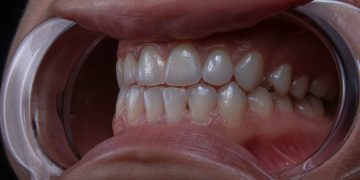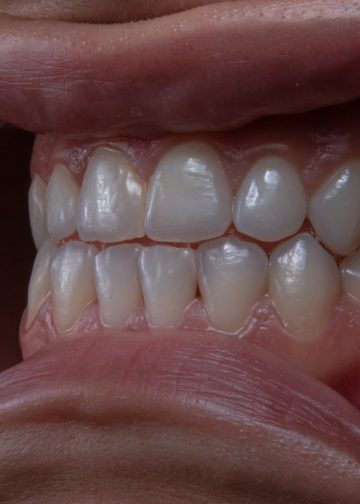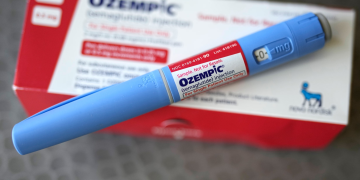Key Takeaways
- Prime Hydration has only 20 calories per bottle, while Prime Energy has 10 calories, making it a low-calorie alternative to sugary drinks like Gatorade or soda.
- Prime Hydration contains coconut water, electrolytes, and B vitamins, while Prime Energy includes taurine and antioxidants, both promoting hydration and energy.
- Prime Energy contains 200 mg of caffeine (about two cups of coffee), making it a strong energy drink. Prime Hydration has no caffeine.
- Prime Hydration is great for hydration, gym enthusiasts, and athletes, while Prime Energy should be consumed with caution due to its high caffeine content, especially for kids or sensitive individuals.
Prime has taste, color and even amazing branding but is it all just about marketing or something more? Let’s dive deep into Prime nutrition facts and decide if it’s healthy for you!!
Is Prime Really A Health Drink?
Prime markets itself as a sports drink packed with electrolytes, vitamins, and no added sugar, but does that really make it “healthy”? Well, that kind of depends on your perspective. If you’re looking for a quick pick-me-up after a workout, Prime Hydration is a solid option because of its coconut water and electrolytes.
Just keep in mind, it’s essentially flavored water with sweeteners, not some magical health elixir. On the other hand, Prime Energy comes loaded with caffeine that’s probably not the best choice for kids. And is more about giving you that energy boost. So, it just depends on your lifestyle. And perhaps, calling it a health drink might be pushing it a bit.
What Are The Key Ingredients In Prime Drinks?
The Hydration bottles include:
- Coconut Water – a natural source of electrolytes.
- Electrolytes (Potassium, Magnesium, Sodium) – keep your body balanced after sweat loss.
- B Vitamins & Antioxidants – support energy metabolism and recovery.
- Zero Added Sugar – sweetness comes from sucralose and acesulfame K instead.
Meanwhile, the Energy has:
- 200 mg of Caffeine – The main driver for focus and alertness.
- Taurine & Electrolytes – Common in energy blends for endurance.
Prime vs. Similar Drinks: What Is The Difference?
Prime is competing in a bustling market already filled with established names like Gatorade, Powerade, BodyArmor, and Red Bull. What makes Prime stand out is its claim of being a low-calorie drink, free from added sugars. A typical bottle of Prime Hydration is packed with electrolytes, coconut water, and B vitamins, but it only has about 20 calories, much lower than the 100+ calories you might find in a regular Gatorade or Powerade. And BodyArmor is somewhat similar since it also includes coconut water, it still contains more sugar than Prime.
On the energy drink front, Prime Energy goes head-to-head with Red Bull and Monster. The main differentiator here is the caffeine content: Prime boasts 200 mg per can, which is nearly double that of a standard Red Bull (80 mg) and comparable to some flavors of Monster. This high caffeine level makes it appealing for gamers and those burning the midnight oil, but it also raises some safety concerns for kids and teenagers.
For those who are health-conscious, the lower sugar content is a big draw but the elevated caffeine levels in the Energy line mean that moderation is key.
Detailed Prime Nutrition Facts And Info
Prime Hydration (per 16 fl oz bottle)
- Calories: ~20
- Sugar: 0 g (sweetened with sucralose & acesulfame K)
- Electrolytes: Potassium (700 mg), Magnesium, Sodium
- Coconut Water: 10% for natural hydration
- Vitamins: B6, B12, A, E, Zinc
- Caffeine: None
Prime Energy (per 12 fl oz can)
- Calories: ~10
- Sugar: 0 g
- Caffeine: 200 mg (about two cups of coffee)
- Electrolytes: Potassium, Sodium, Magnesium
- B Vitamins: B6, B12, Niacin
- Taurine & Antioxidants: For energy and focus
Prime And Weight Management
It’s low in calories and completely sugar-free! A typical bottle of Prime Hydration has just around 20 calories, while drinks like Gatorade or Powerade can pack in over 100 calories. This makes Prime a great choice for anyone keeping an eye on their calorie intake or looking to reduce sugar without sacrificing flavor. Plus, it uses artificial sweeteners like sucralose to keep things sweet without adding extra carbs.
That said, it’s crucial to remember that Prime isn’t some miracle weight-loss drink, it’s just a lower-calorie option. For those who are serious about managing their weight, it can be a smart swap for sugary sports drinks or sodas, but it should definitely be part of a balanced diet and regular exercise routine. In a nutshell, Prime can help support a weight-conscious lifestyle, but it’s not a replacement for healthy habits.
Who Should And Shouldn’t Drink Prime?
Prime Hydration is typically safe for most folks. Athletes, gym enthusiasts, and anyone looking to rehydrate after a tough workout can really benefit from its blend of electrolytes, vitamins, and low-calorie formula. Plus, it’s a much better choice than those sugary sports drinks for anyone keeping an eye on their calorie count. Even those who just want a tasty water option can enjoy it without any worries.
On the flip side, Prime Energy calls for a bit more caution. With a hefty 200 mg of caffeine in each can, it’s not the best choice for kids, teens, pregnant women, or anyone who’s sensitive to caffeine. For healthy adults, it can be a great pre-workout pick-me-up or a coffee alternative, but moderation is key, and too much caffeine can lead to jitters, a racing heart, or trouble sleeping.
Prime FAQs
Looking to find out if Prime has sugar?
The answer is no! Both Prime Hydration and Prime Energy are completely sugar-free, relying on sweeteners like sucralose and acesulfame K instead.
Curious about the caffeine content in Prime Energy?
Each 12 oz packs a punch with 200 mg of caffeine, which is about the same as two cups of coffee. On the flip side, Prime Hydration doesn’t contain any caffeine at all.
Wondering if Prime is safe for kids?
Generally, Prime Hydration is considered safe for kids when consumed in moderation. However, Prime Energy isn’t recommended for them because of its high caffeine levels.
What sets Prime apart from Gatorade or Red Bull?
Well, Prime Hydration has fewer calories and less sugar than Gatorade, while Prime Energy packs a bigger caffeine punch than Red Bull, giving you a stronger energy boost.
Can Prime assist with weight loss?
Not really. While Prime is low in calories and sugar-free, making it a better option than soda or sugary sports drinks, it’s not specifically designed for weight loss on its own.
Conclusion
While Prims is not a miracle health drink, Prime can definitely become a part of a balanced lifestyle when enjoyed in moderation.





















